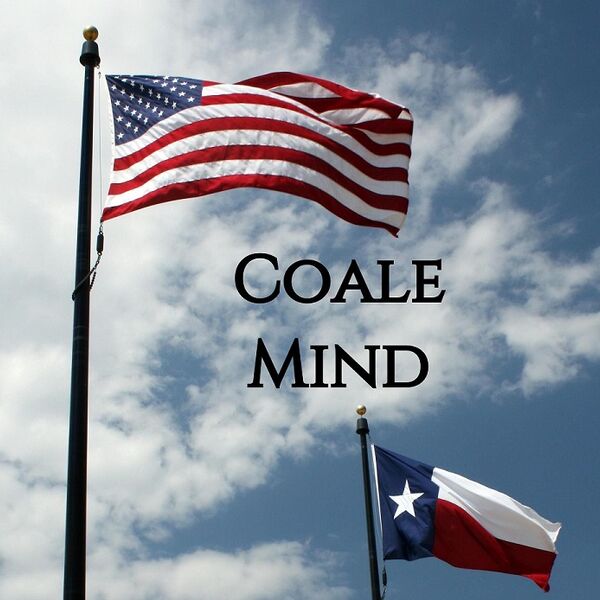Texas’ rule against the appeal of interlocutory orders has a long and colorful history of exceptions to that rule (a story well told by Lee Thompson in her recent law review article about our interlocutory-appeal statute). The increased number of permissible interlocutory appeals can produce procedural friction with the standard appellate process; the supreme court recently granted review of a Dallas case involving such friction on a fundamental jurisdictional point:
Monthly Archives: January 2022
- “Payment is an affirmative defense which the defendant has the burden to plead and prove. Payments pled by the defendant which are not admitted in the plaintiff’s petition must be specifically alleged.”
 What about trial by consent? “‘The doctrine of trial by consent does not apply when the evidence of an unpleaded matter is relevant to the pleaded issues because it would not be calculated to elicit an objection.’ Milbourn’s testimony was relevant to the Kidwell’s claim for breach of fiduciary duty … that Bresnahan breached his fiduciary duty by failing to disclose his conflicts of interest and by unilaterally increasing his own wages. … Because the Kidwells’ evidence of payment [a spreadsheet] was also relevant to their pleaded claim for breach of fiduciary duty, we conclude payment was not tried by consent.”
What about trial by consent? “‘The doctrine of trial by consent does not apply when the evidence of an unpleaded matter is relevant to the pleaded issues because it would not be calculated to elicit an objection.’ Milbourn’s testimony was relevant to the Kidwell’s claim for breach of fiduciary duty … that Bresnahan breached his fiduciary duty by failing to disclose his conflicts of interest and by unilaterally increasing his own wages. … Because the Kidwells’ evidence of payment [a spreadsheet] was also relevant to their pleaded claim for breach of fiduciary duty, we conclude payment was not tried by consent.”
Haddington Fund, LP v. Kidwell, No. 05-19-01202 (Jan. 11, 2022) (mem. op.) (citations omitted).
A question in Kanen v. DeWolff, Boberg & Assocs. was whether the plaintiff presented a fact issue about a prima facie case of age discrimination; specifically, as to whether he had been “replaced by someone outside the protected class, replaced by someone younger, or was otherwise discharged because of his age.” The Fifth Court found a sufficient question to avoid summary judgment on that point, noting two matters in particular. First –
“Because Kanen presented evidence DeWolff retained and hired substantially younger market analysts after his employment was terminated, and because DeWolff considers the market analysts to be interchangeable and claimed Kanen’s accounts would be randomly assigned to other analysts and conceded that Kanen’s replacement ‘could be anyone in the office,’ a jury could determine that Kanen’s job duties were distributed to younger workers.”
And second –
“In addition, contrary to DeWolff’s assertion of how accounts are assigned, Kanen established market analysts are assigned to a specific outside salesperson and territory. A jury could conclude that DeWolff’s explanation as to how accounts are assigned is not credible and infer that the individual, or individuals, who took over his accounts were among those Kanen identified as being substantially younger than himself.”
No. 05-20-00126-CV (Jan. 18, 2022) (mem. op.).
The standard for waiver of a contractual arbitration right can be demanding, especially if the record does not contain all referenced material:
“Mary’s response to appellants’ amended motion to compel arbitration stated that appellants served responses to discovery in December 2016 and sent discovery requests of their own in February 2017. Appellants contend that the discovery they propounded was minimal, consisting of nine interrogatories, nine requests for admission, and one request for production. As no party attached any of the requests or responses to their filings in connection with the motions to compel arbitration, we cannot weigh any of the discovery-related factors in favor of or against waiver. Mary has not shown that the discovery in question was extensive, related to the merits of her claims, or would be unavailable in arbitration.”
Haddington Fund v. Kidwell, No. 05-19-01202 (Jan. 11, 2022) (mem. op.) (citations omitted).
 In Hadley v. Baxendale, 8 Exch. 341, 156 Eng. Rep. 145 (1854), the Court of Exchequer held that a miller’s lost profits, arising from the late delivery of a replacement shaft for a steam engine in the mill, were not recoverable as consequential damages in a suit for breach of contract: “But it is obvious that, in the great multitude of cases of millers sending off broken shafts to third persons by a carrier under ordinary circumstances, such consequences would not, in all probability, have occurred, and these special circumstances were here never communicated by the plaintiffs to the defendants. It follows, therefore, that the loss of profits here cannot reasonably be considered such a consequence of the breach of contract as could have been fairly and reasonably contemplated by both the parties when they made this contract.”
In Hadley v. Baxendale, 8 Exch. 341, 156 Eng. Rep. 145 (1854), the Court of Exchequer held that a miller’s lost profits, arising from the late delivery of a replacement shaft for a steam engine in the mill, were not recoverable as consequential damages in a suit for breach of contract: “But it is obvious that, in the great multitude of cases of millers sending off broken shafts to third persons by a carrier under ordinary circumstances, such consequences would not, in all probability, have occurred, and these special circumstances were here never communicated by the plaintiffs to the defendants. It follows, therefore, that the loss of profits here cannot reasonably be considered such a consequence of the breach of contract as could have been fairly and reasonably contemplated by both the parties when they made this contract.”
The long shadow of that broken shaft was most recently seen in Signature Indus. Services, LLC v. Int’l Paper Co., which held: “The law does not charge contracting parties with a duty to understand how their actions will affect the counterparty’s market valuation. … As a general rule, neither the counterparty’s market value nor the impact of breach on that value will be reasonably foreseeable at the time of contracting. SIS … attempted to show that IP was intimately familiar with SIS’s business because of the companies’ close relationship. But again, knowledge of a business is not the same as knowledge of the market for buying and selling that business.” No. 20-0396 (Jan. 14, 2022).
 By popular demand, the nationally respected jury consultant Jason Bloom returns to the “Coale Mind” podcast after his insightful interview last year about the restart of jury trials after the 2020 quarantines. In this new 2022 episode, he discusses his insights from the continued return of jury trials.
By popular demand, the nationally respected jury consultant Jason Bloom returns to the “Coale Mind” podcast after his insightful interview last year about the restart of jury trials after the 2020 quarantines. In this new 2022 episode, he discusses his insights from the continued return of jury trials.
Jason describes how, across the country, prospective jurors are more eager to be selected and serve on juries than ever before, reflecting a national mood that wants to reassert control over government after many months of uncertainty and frustration. Relatedly, jury deliberations are emphasizing a theme of “accountability”–examining which party to a case has demonstrated responsibility for its actions and decisions.
Obviously important for trial lawyers, Jason’s insights are also critical to understanding America’s political dialogue as society continues to reawaken after the COVID pandemic. Whether acting as jurors, voters, or customers, decisionmakers bring very specific interests and desires to 2022 that must be understood and accommodated to make effective policy.
 In Soo v. Pletta, the Fifth Court affirmed the denial of a TCPA motion, finding an insufficient connection between the allegedly protected activity and the lawsuit, and noting:
In Soo v. Pletta, the Fifth Court affirmed the denial of a TCPA motion, finding an insufficient connection between the allegedly protected activity and the lawsuit, and noting:
- Case law about the previous version of the TCPA, which required a showing that claims were “based on, related to, or in response to” protected activity, has less relevance under the amended version that asks whether a claim is “based on or in respone to” the activity; and
- “The Soos’s argument that Trust’s claims are “based on or in response to” TCPA-protected activity simply because that activity occurred before Trust filed its lawsuit amounts to a post hoc ergo propter hoc logical fallacy and does not satisfy the Soos’s step one burden” under the TCPA.
No. 05-20-00876 (Jan. 14, 2022) (mem. op.).
 The Fifth Court found that a set of overly-redacted fee statements was legally insufficient evidence to support an award of fees in THB Construction v. Holt Texas, Ltd., observing:
The Fifth Court found that a set of overly-redacted fee statements was legally insufficient evidence to support an award of fees in THB Construction v. Holt Texas, Ltd., observing:
“[T]he evidence here is like that presented in [Long v. Griffin, 442 S.W.3d 253 (Tex. 2014)]. In both cases, counsel testified only to general tasks performed during the representation. Although Holt’s counsel produced invoices, they effectively provide no additional evidence beyond counsel’s testimony due to the heavy redactions. Indeed, counsel admitted as much. In that regard, the evidence presented here is just as insufficient as that presented in Long.”
The Court further reviewed its own relevant precedent in this area. No. 05-20-00020-CV (Jan. 13, 2022) (mem. op.) (citation omitted).
 A delay in holding a hearing on a TCPA motion (again) led to denial of appellate review in Vertical Holdings LLC v. LocatorX, Inc.:
A delay in holding a hearing on a TCPA motion (again) led to denial of appellate review in Vertical Holdings LLC v. LocatorX, Inc.:
“… [W]e find no information in the record to support Vertical Holdings’s suggestion that the hearing delay was caused by the COVID-19 pandemic. We also find no information in the record to suggest the trial court canceled the October 5, 2020 hearing or suspended any TCPA deadlines as a result of any of the supreme court’s pandemic-related emergency orders.
Notably missing from the record is any information about the trial court’s docket conditions on or near October 5, 2020, the date of the original hearing setting. Also missing is any information showing good cause to reset the hearing, an agreement between the parties to reset the hearing within section 27.004’s deadlines, an extension to allow discovery under TCPA section 27.006(b), or any other efforts by Vertical Holdings to have the motion heard within section 27.004’s deadlines.”
No. 05-21-00469-CV (Jan. 14, 2022) (mem. op.).
 The supreme court engaged fundamental, black-letter principles of contract law in Angel v. Tauch, No. 19-0793 (Jan. 14, 2022), holding:
The supreme court engaged fundamental, black-letter principles of contract law in Angel v. Tauch, No. 19-0793 (Jan. 14, 2022), holding:
“Offer and acceptance are essential elements of a valid and binding contract. As a matter of blackletter law, an offer empowers the offeree to seal the bargain by accepting the offer. But equally well-established is the rule that acceptance is ineffective to form a binding contract if the power of acceptance has been terminated, such as by the offeror’s revocation before acceptance. The main issue in this contract dispute is whether a purported offer to settle a debt for a reduced sum was accepted before it was revoked. Resolution of that issue turns on the parameters of the recognized, but rarely implicated, doctrine of implied revocation.
Here, the parties dispute whether the implied-revocation doctrine (1) is limited to offers involving the sale of land, (2) applies if the offeree learns about the offeror’s inconsistent act from someone other than the offeror, and (3) is satisfied under the undisputed facts in this case. We hold that the doctrine is not constrained to real-property transactions and the settlement offer was impliedly revoked when the offeror assigned the underlying judgment to a third party for collection and the assignee gave the offeree a copy of the assignment agreement before he accepted the settlement offer. We therefore reverse the court of appeals’ judgment and render judgment that no contract to settle the debt was formed.”(footnotes and citations omitted, emphasis added).
The Fifth Court recently recalled a mandate and amended its own judgment to include the surety on a supersedeas bond as an additional party. The motion primarily cited Whitmire v. Greenridge Place Apts., 333 S.W.3d 255, 260-61 (Tex. App. – Houston [1st Dist.] 2010, pet. dism’d w.o.j.). A big 600Commerce thanks to Ben Taylor for pointing out this order to me (and correcting the pet. history on my original post)

 The Fifth Court found that an appeal, taken from the domestication of a foreign judgment under the Uniform Enforcement of Foreign Judgments Act, was untimely. The Appellant cited the later filing of a third-party action, and a related special appearance, as reasons the clock did not start to run. The Court disagreed:
The Fifth Court found that an appeal, taken from the domestication of a foreign judgment under the Uniform Enforcement of Foreign Judgments Act, was untimely. The Appellant cited the later filing of a third-party action, and a related special appearance, as reasons the clock did not start to run. The Court disagreed:
“The Foreign Judgment became a final Texas Judgment on January 22, 2020, the day it was filed. ‘By its very nature, the UEFJA does not contemplate or authorize the entry of a judgment replacing the foreign judgment.’ … [I]t is well settled that a Texas trial court has no jurisdiction to set aside another state’s judgment and return the parties to the positions they occupied before the foreign judgment was rendered. An intervention and a third-party claim in an enforcement proceeding do not in any way alter this fact.”
Moreno v. Halperin, No. 05-20-00858-CV (Dec. 14, 2021) (mem. op.).
A contempt/sanction order entered in a dispute about a divorce degree was vacated by In the Interest of E.W.M., No. 05-19-01589-CV (Jan. 7, 2022) (mem. op.): “Here, the record shows the enforcement proceedings could have resulted in Marc’s incarceration. Thus, the trial court was required to inform Marc that he had a right to counsel. See [Tex. Family Code ] § 157.163 (a), (b). But instead of informing Marc of that right, the trial court affirmatively misrepresented that, because Sarah did not seek more than six months of jail time, he had no right to counsel. This was clear error, and we are not persuaded by Sarah’s arguments to the contrary.”
The denial of a special appearance by a Florida-based real estate broker was affirmed after the Fifth Court noted these facts:
- “Though appellants’ solicitations involved the sale of Florida property, they knew from Mr. Bernstein’s mailing address that they were soliciting a Texas resident who was thus subject to Texas laws, including property-ownership laws. Appellants had a ‘say in the matter’ as to whether to reach out to solicit business in Texas.”
- “Here, unlike in [Bryan v. Gordon, 384 S.W.3d 908 (Tex. App.–Houston [14th Dist.] 2012, no pet.)], Mr. Bernstein made no initial request for contact. Instead, appellants ‘initially targeted’ Mr. Bernstein, whom they knew to be a Texas resident, as a client.”
- “Though appellants contend ‘everything’ for which they are being sued ‘occurred in Florida,’ the record shows the Bernsteins’ claims are directly based on alleged misrepresentations appellants made during the solicitations and the resulting contract allegedly induced by those misrepresentations. Thus, appellants’ contacts are substantially connected to the litigation’s operative facts.”
Ringham v. Bernstein, No. 05-21-00526-CV (Jan. 5, 2022) (mem. op.).
 To the right, Mother Hubbard plays well with her dog, but in Eagle Remodel LLC v. Capital Financial Corp., Mother Hubbard did not play well with a summary-judgment order: “Appellant asserts in a letter brief filed at our direction that the order is appealable because appellee did not file a counterclaim for fees and the order included a ‘Mother Hubbard’ clause stating that ‘All relief not expressly granted herein is denied.’ As appellee notes in its response, however, a ‘Mother Hubbard’ clause is not indicative of finality when, as here, a conventional trial on the merits was not held.” No. 05-21-00625-CV (Jan. 5, 2022) (mem. op.) (applying Lehmann v. Har-Con Corp., 39 S.W.3d 191 (Tex. 2001)).
To the right, Mother Hubbard plays well with her dog, but in Eagle Remodel LLC v. Capital Financial Corp., Mother Hubbard did not play well with a summary-judgment order: “Appellant asserts in a letter brief filed at our direction that the order is appealable because appellee did not file a counterclaim for fees and the order included a ‘Mother Hubbard’ clause stating that ‘All relief not expressly granted herein is denied.’ As appellee notes in its response, however, a ‘Mother Hubbard’ clause is not indicative of finality when, as here, a conventional trial on the merits was not held.” No. 05-21-00625-CV (Jan. 5, 2022) (mem. op.) (applying Lehmann v. Har-Con Corp., 39 S.W.3d 191 (Tex. 2001)).
The Texas Lawbook recently published a good feature by Androvett Legal Media & Marketing about the top Texas legal stories of 2021 (in which I discuss the hard-fought litigation about SB8, the new Texas abortion law). It’s worth a look while preparing for law practice in this New Year.
The question whether testimony is “conclusory” arises frequently in commercial litigation, particularly when the testimony is presented by affidavit. While the boundary lines are not always clear, one definite data point for practitioners was provided by Chloe’s Concepts, LLC v. Clear Rainbow, Inc., which held in a default-judgment case: “Appellants complain that the affidavit of Clear Rainbow’s president does not state when default occurred but merely concludes the past due amount was $128,259.86 and that prejudgment interest was $11,069.00. However, ‘[t]estimony of the total amount due under a written instrument is legally sufficient to support an award of that amount in a default judgment proceeding.'” No. 05-20-00484-CV (Dec. 20, 2021) (mem. op.) (citation omitted).
A default judgment stood when the defendant “state[d] he was in discussions with plaintiff’s counsel regarding a resolution without court intervention.” The Fifth Court noted: “Settlement negotiations may be a valid excuse for failing to answer where there is some basis for the defendant to believe default would not be taken while negotiations were in progress.” But “appellants produced no evidence of any statement by appellee that would give them reason to believe that appellee would not take a default judgment”; thus, the first Craddock factor was not satisfied. Chloe’s Concepts, LLC v. Clear Rainbow, Inc., No. 05-20-00484-CV (Dec. 20, 2021) (mem. op.).
